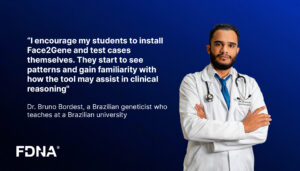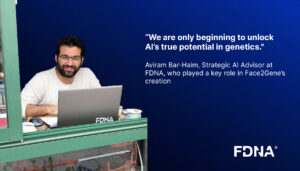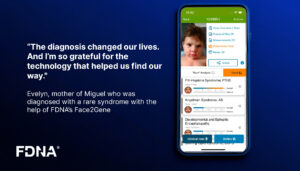May 15, 2018
Stanford Medicine SCOPE
“FDNA, a digital health platform that harnesses AI to better diagnose and develop treatment for genetic disease. In health care, and specifically in genomics, big data is key to getting insights into the cause of many medical conditions. It is how we develop diagnostics, and therapeutics and guide health care for patients — it all starts with understanding the biological mechanisms, the genomic pathways, and how genotypes and phenotypes are related. The only way to gain insights from the vast amount of data produced from next-generation sequencing is by applying artificial intelligence and pattern recognition — no human being can process so much data.
At FDNA, we focus on capturing, structuring, and analyzing complex physiologic data of humans with next-generation phenotyping technologies and linking patterns identified to their genetic origin. With this approach, we can gain actionable insights into genomics that can facilitate faster and more comprehensive advances in precision medicine.”
The article explores how advanced AI technologies revolutionize healthcare by enabling more accurate diagnoses and personalized treatments. Integrating Big Data analytics allows for processing vast and complex datasets, leading to a deeper understanding of genetic disorders and patient-specific health profiles.


